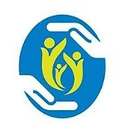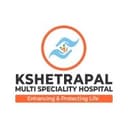Bachelor of Science (BSc) in Cardiac Technology
OR
Prepared by Docthub Courses Team ∣
Last updated on 31 Jul 2024
Overview
The B.Sc. The Cardiac Technology program is a comprehensive course that covers various aspects of cardiology. The program includes theoretical and practical training in subjects such as anatomy, physiology, electrocardiography, pharmacology, and cardiac rehabilitation.
B.Sc. Cardiac Technology is an undergraduate program that focuses on the study of the heart and its functions. The course is designed to train students in various aspects of cardiac care, including the diagnosis, treatment, and prevention of heart-related diseases.

Table of Content
Highlights
| Details | Bachelor of Science (B.Sc.) in Cardiac Technology |
| Level | Bachelor’s degree |
| Duration | 3 Years |
| Exam Type | Semester-wise |
| Course Fees | INR 70,000- 2.5 lakhs per year |
| Min. Qualification Requirement | 10+2 in the science stream with physics, chemistry, and biology. |
| Average Salary | INR 3-4 per year |
| Selection Process | Entrance exam/ Merit Based |
| Min. Aggregate Score | 50% or more in 10+2 in science stream |
Eligibility:
BSC cardiovascular technology eligibility includes candidates who must have completed their 10+2 education with a science stream from a recognized board.
Fees:
The fees for the B.Sc. The Cardiac Technology program may vary depending on the college or university. However, the average b.sc cardiac technology fees range from INR 70,000 to INR 2.5 lakhs per year.
Who Should Do This Course?
This course is suitable for students who have an interest in cardiology and want to pursue a career in the field of cardiac care. Students who have completed their 10+2 education with a science stream and have a passion for healthcare can opt for this course.
Why Study This Course?
The B.Sc. in Cardiac Technology program provides students with the knowledge and skills required to work in the field of cardiac care. The course offers practical training in various aspects of cardiology, which can help students gain hands-on experience and prepare them for a career in the healthcare industry.
Entrance Exam:
Some colleges and universities may conduct an entrance exam for admission to the B.Sc. Cardiac Technology program. The entrance exam may include questions on subjects such as Physics, Chemistry, Biology, and Mathematics.
Admission Process:
The admission process for the B.Sc. in Cardiac Technology program may vary depending on the college or university. Some colleges may admit students based on their performance in the entrance exam, while others may offer admission based on merit.
Syllabus:
The syllabus for the B.Sc. in Cardiac Technology program may vary depending on the college or university. However, some of the common subjects covered in the course include Anatomy and Physiology, Electrocardiography, Cardiovascular Pharmacology, Cardiac Rehabilitation, and Cardiac Imaging.
Top Private Colleges:
Some of the top private colleges offering the B.Sc. Cardiac Technology program includes:
- Rajiv Gandhi Paramedical Institute, Delhi
- Sri Jayadeva Institute of Cardiovascular Sciences and Research, Bangalore
- Saveetha Medical College and Hospital, Chennai
- KIMS (Karunya Institute of Medical Sciences), Coimbatore
- MVJ College of Medical Sciences and Research, Bangalore
Top Govt Colleges:
Some of the B.Sc. cardiac technology government colleges includes:
- Lokmanya Tilak Municipal Medical College, Mumbai
- JSS Medical College, Mysore
- Gandhi Medical College, Bhopal
- SCB Medical College, Cuttack
- Nizam's Institute of Medical Sciences, Hyderabad
Scope:
After completing the B.Sc. in Cardiac Technology program, students can pursue a career as a Cardiac Technologist, ECG Technician, Cardiac Sonographer, or Cath Lab Technologist.
The demand for cardiac care professionals after BSC cardiovascular technology scope is increasing due to the rising incidence of heart-related diseases.
Further Study Options:
After completing the B.Sc. in Cardiac Technology program, students can opt for higher education courses such as an M.Sc. in Cardiology or an MBA in Healthcare Management.
Career Opportunities After This Course:
After completing the B.Sc. Cardiac Technology program, students can pursue a career in various healthcare settings such as hospitals, clinics, diagnostic centers, and research institutes.
Salary:
After completion of B.Sc. Cardiac technology salary may vary depending on one’s job profile and experience. However, the average salary for a Cardiac Technologist in India is around INR 3-4 lakhs per annum.
Explore colleges for this course
Quick Go Links

Explore this course by location..
Related Job Roles
Related Job Vacancies
View All 10 Jobs

FAQS
What is the salary after BSc Cardiac Technology?
The salary after B.Sc. Cardiac Technology can vary depending on factors such as location, experience, and the employing organization. On average, professionals in this field can expect a starting salary of around INR 3-4 Lakhs per year.
What is the job after B.Sc. cardiac technology?
After completing a B.Sc. in Cardiac Technology, graduates can pursue various job opportunities such as Cardiac Technologist, Echocardiography Technologist, Cardiovascular Technologist, or Cardiac Sonographer.
Is Cardiac Technology in demand?
Cardiac Technology is in demand due to the increasing prevalence of cardiovascular diseases and the need for specialized professionals to diagnose and treat them. The demand for skilled cardiac technologists is expected to continue growing in the coming years.
What is a Bachelor of Science (B.Sc.) in Cardiac Technology?
A Bachelor of Science (B.Sc.) in Cardiac Technology is a degree program that provides students with the knowledge and skills to perform diagnostic procedures related to the cardiovascular system. It includes subjects such as anatomy, physiology, electrocardiography, echocardiography, and cardiac catheterization.
Does B.Sc. cardiology require NEET?
No, B.Sc. Cardiology does not require NEET (National Eligibility cum Entrance Test) as it is not a medical degree. However, specific admission requirements may vary between institutions, so it's advisable to check with the university or college you are interested in for their specific admission criteria.
Related Course titles

Qualifications
12th Science PCB
Related Specialty
Minimal Invasive Cardiac Surgery
Cardiac Technology






